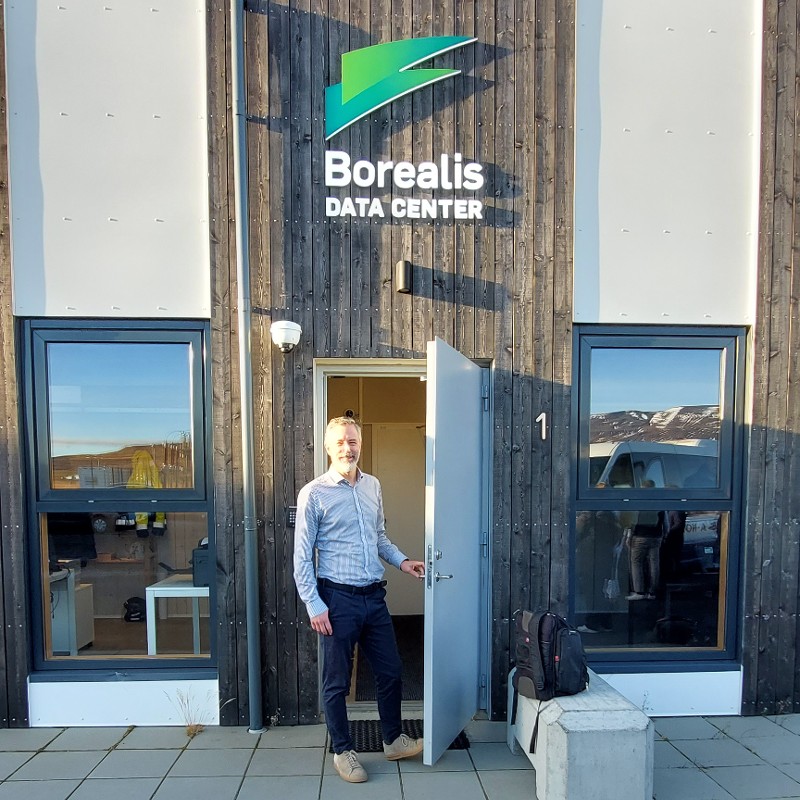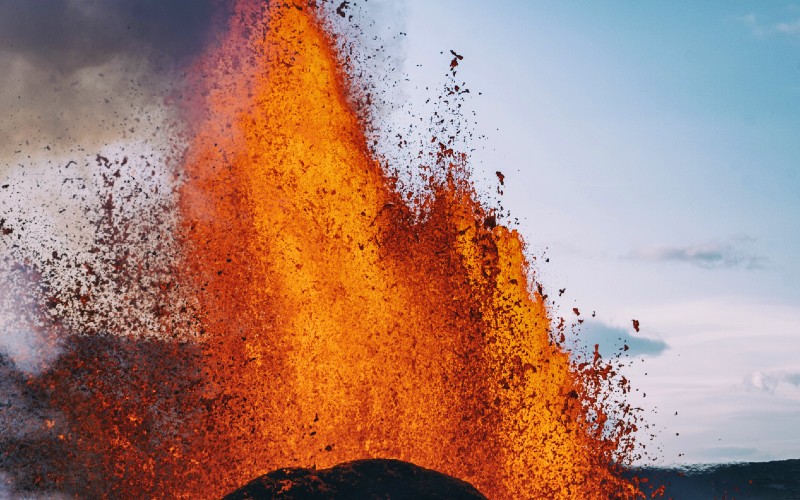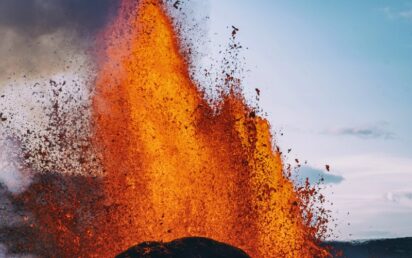The eyes of the world are currently turned towards Iceland and its spectacular volcanic eruption.
Following weeks of seismic activity, a 2.5-mile long fissure has now opened, spewing forth a line of lava jets and hellish red smoke.
There is no threat to life or major disruption to the Nordic island nation’s flights, although reports of potential gas pollution are beginning to emerge. Yet those eyes may soon be trained upon Iceland for another environmental reason: the potential of its data centre industry to reduce carbon footprints.
With 100% renewable energy and a cold climate ideal for cooling data centres with relatively little power, companies including BNP Paribas are accelerating their journey to Net Zero and making drastic cost savings in the process.
“Data centres are a great foundation for a strong IT industry, and the scale of the current operations in Iceland are much, much greater than what is needed domestically,” Bjorn Brynjulfsson below) – chair of industry body Data Centers By Iceland and CEO of Borealis – a company which operates three data centres in the country – told BusinessCloud on a visit to the country weeks before the eruption.
“We are taking natural energy resources and using the cold climate to create a digital product which we can send to customers around the globe. All of that is adding to the diversification of the local industry: it’s a nice new green industry for the country to have.”
Those natural resources include 30% geothermal energy – harnessing the power beneath the Earth’s crust – and 70% hydroelectric.

Competitive advantage
Brynjulfsson, who had a background in electrical engineering and software before working in venture capital, co-founded Borealis in 2014 after identifying the potential for the industry and carrying out several years of preparation work.
“In 2010 we concluded that Iceland could have a long-term competitive advantage for running data centres through the cold climate, the renewable energy and the reliability of the infrastructure,” he explains.
“We started looking into this, but it’s a lengthy process to build up a data centre campus: securing land and access to power, carrying out the site selection.”
Could Iceland become sustainable digital backbone of Europe?
Eruption
Borealis now employs 30 people across its three sites, only one of which is in the region affected by the earthquakes and ongoing eruption. This Fitjar campus is not close to the eruption site and the company says “there is no immediate risk to the facility, equipment or the data housed within”.
It is also monitoring contamination in the air – it has procedures ready to protect the equipment and data centre in case of high levels of contamination – says the nearby plant which supplies power is well connected to the national grid and that backup generators will ensure uninterrupted service in any unforeseen circumstances.
Building a data centre company is far from straightforward, continues Brynjulfsson. “I’ve learned a lot. Data centres are quite different to software companies: as an example, if you’re writing software, you have a lot of things in your own control; but when you’re building out data centres on a large scale, you’re dealing with a lot of slowly moving parts, building out the high-voltage systems… you have to be well-prepared and do your homework.”
The next level
Borealis is taking its sustainability offering to another level by researching ways to reuse excess energy in the community: examples include curing fish and drying wood, while it is also conducting an experiment with liquid cooling at a nearby business.
“We are trying to make people aware of what we can offer, the value proposition and how we can help them solve their sustainability challenges, and do it in a cost effective manner,” he adds of its data centre offering.
“We have capacity to take on customers now and we have expensive plans, so we’re in a good position to serve our customers into the future.”

